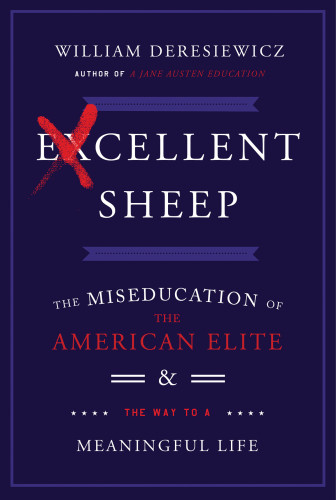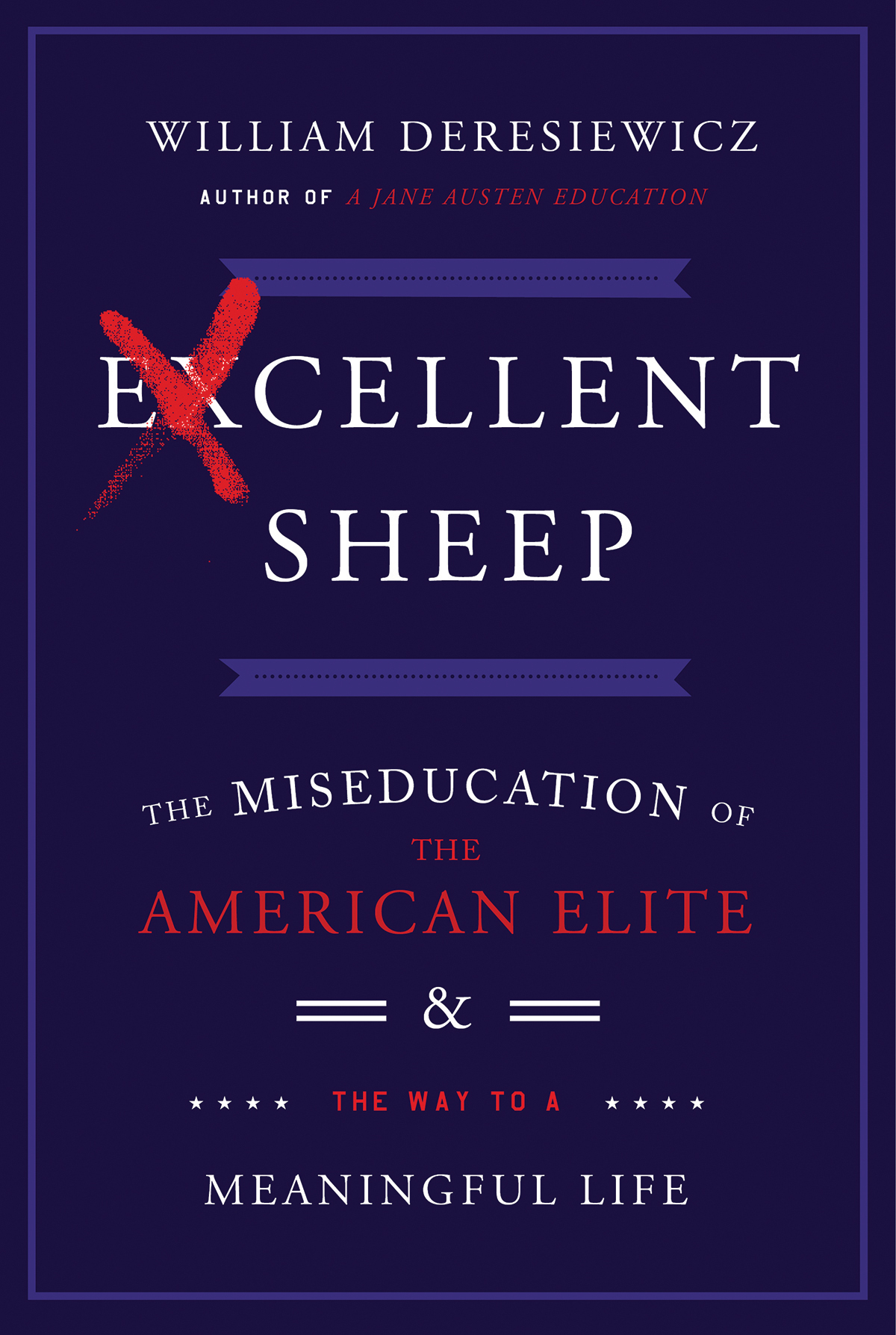 Excellent Sheep: The Miseducation of the American Elite and the Way to a Meaningful Life
Excellent Sheep: The Miseducation of the American Elite and the Way to a Meaningful Life
William Deresiewicz
Free Press, 2014
243 pages
“This book, in many ways, is a letter to my 20-year-old self. It talks about the kinds of things I wish that someone had encouraged me to think about when I was going to college — such as what the point of college might be in the first place.” William Deresiewicz’s manifesto, “Excellent Sheep: The Miseducation of the American Elite and the Way to a Meaningful Life,” takes a sharp look at elite education and the “high-pressure conveyor belt that begins with parents and counselors who demand perfect grades.”
Even though Deresiewicz focuses on elite academic institutions such as Harvard, Yale or Williams and “the larger universe of second-tier selective schools and all that leads up to and away from them: the private and affluent public high schools, the ever-growing industry of tutors and consultants, test-prep courses and enrichment programs,” other broad-based concerns apply to students’ experience today. He includes among these concerns: helicopter parents, the unwillingness of students to accept honest feedback, grade creep, the consumerism of higher education, and the preference for practical and career-focused majors over liberal arts education.
Deresiewicz is himself a product of elite education — Columbia University — and has taught at Yale. As a member of that university’s admissions committee, he became disillusioned with the blatant resume building and compulsive overachievement of today’s elite college-bound high school students.
The number of Advanced Placement courses — and the club and organization memberships — are calculated moves to ensure a top-notch college application rather than opportunities to learn and discover what one loves and does best. Deresiewicz calls this move “credentialism. The purpose of life becomes the accumulation of gold stars. Hence the relentless extracurricular busyness, the neglect of learning as an end in itself, the inability to imagine doing something that you can’t put on your resume.”
This busyness takes a toll. The 2010 survey of the American College Health Association found that nearly half of college students surveyed at 200 public and private colleges and universities reported feelings of hopelessness and one-third felt isolated and overwhelmed. A graduate instructor at Princeton told Deresiewicz that “an undergrad thesis-student fainted in my office the other day because she was feeling so much pressure from her academic life.”
A student commented that “people at Yale do not have time for real relationships.”
A University of Pennsylvania student admitted positioning “myself in college in such a way that I can’t have a meaningful romantic relationship, because I’m always busy and the people that I am interested in are always busy too.”
Deresiewicz’s manifesto identifies practices harmful to the enterprise of undergraduate instruction. He considers the most egregious practice is basing hiring and tenure decisions on research and grant efforts rather than quality of teaching. In addition, he writes, curricula need redesigning “to give coherence to the education experience and to challenge students to develop a strong degree of moral awareness.”
He lashes out at the lack of academic rigor and suggests that career services should “keep themselves informed about the broad range of postgraduate options and make a point of steering students away from conventional choices.” He urges that “rather than squandering money on luxurious amenities and exorbitant administrative salaries, schools redirect themselves to their core missions of teaching and liberal arts.”
Because many of these problems exist at non-elite colleges and universities, too, this book warrants careful reading by educational policymakers and adults and parents who advise students with college decisions. The high cost of higher education and its career benefits and lack of job opportunities are fueling national discussions regarding many of the issues of entitlement and educational mismanagement presented by Deresiewicz. “Excellent Sheep” has an important message about making college years and beyond both meaningful and authentic.
It is possible that U.S. residents caught in the middle-class squeeze, and whose children are saddled with high student-loan debt in order to attend less prestigious colleges, may not be feeling too sympathetic toward the privileged — these “best and the brightest”— described in “Excellent Sheep,” but Deresiewicz suggests we ought to be concerned because this “elite mentality” pervades the highest levels of government and business and is responsible for many of the financial, military or foreign policy problems facing the U.S.
In the book’s last chapter, “The Self-Overcoming of the Hereditary Meritocracy,” the author provides examples of this “elite mentality” in action: the architects of the Vietnam War who “enmeshed us in a quagmire;” a recent presidential candidate who suggested that to fix the recent unemployment crisis “recent graduates should borrow money from their parents to start a business,” and that eight of nine Supreme Court justices received their law degrees from Harvard or Yale.
U.S. leadership resides in the hands of men and women who are likely insulated from the struggles and conditions of the average American — a condition that Deresiewicz deftly describes.


























